News
-
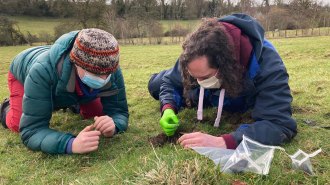 Planetary Science
Planetary ScienceThe pristine Winchcombe meteorite suggests that Earth’s water came from asteroids
Other meteorites have been recovered after being tracked from space to the ground, but never so quickly as the Winchcombe meteorite.
-
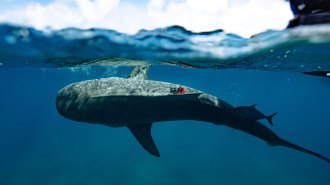 Ecosystems
EcosystemsTiger sharks helped discover the world’s largest seagrass prairie
Instrument-equipped sharks went where divers couldn’t to survey the Bahama Banks seagrass ecosystem.
By Nikk Ogasa -
 Humans
HumansThe world population has now reached 8 billion
In a first, the global population surpassed this milestone on November 15, according to a projection from the United Nations.
-
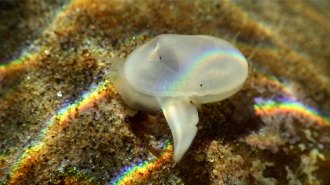 Animals
AnimalsA clam presumed extinct for 40,000 years has been found alive
The reappearance of living Cymatioa cooki clams places it among a group of back-from-the-dead creatures dubbed the Lazarus taxa.
-
 Neuroscience
NeuroscienceNew brain implants ‘read’ words directly from people’s thoughts
In the lab, brain implants can translate internal speech into external signals, technology that could help people who are unable to speak or type.
-
 Plants
PlantsWhy dandelion seeds are so good at spreading widely
Individual seeds on a dandelion flower are programmed to let go for a specific wind direction, allowing them to spread widely as the wind shifts.
-
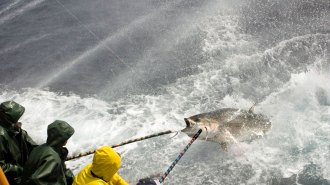 Oceans
OceansSharks face rising odds of extinction even as other big fish populations recover
Over the last 70 years, large ocean fishes like tuna and marlin have been recovering from overfishing. But sharks continue to decline toward extinction.
By Jake Buehler -
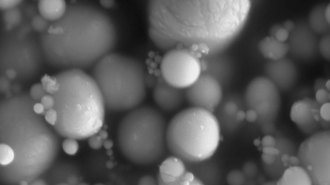 Physics
PhysicsZapping tiny metal drops with sound creates wires for soft electronics
Wearable medical devices and stretchable displays could benefit from a way to use high-frequency sound to create liquid metal wires.
-
 Health & Medicine
Health & MedicineThis child was treated for a rare genetic disease while still in the womb
Babies born with infantile-onset Pompe disease typically have enlarged hearts and weak muscles. But 1-year-old Ayla has a normal heart and walks.
-
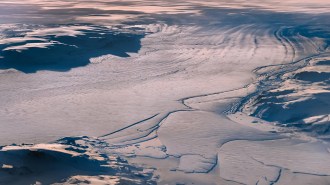 Climate
ClimateGreenland’s frozen hinterlands are bleeding worse than we thought
An inland swath of the Northeast Greenland Ice Stream is accelerating and thinning. It could contribute much more to sea level rise than estimated.
By Nikk Ogasa -
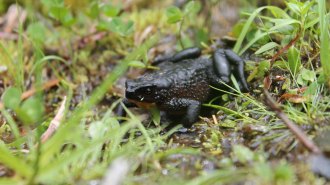 Animals
AnimalsSome harlequin frogs — presumed extinct — have been rediscovered
Colorful harlequin frogs were among the hardest hit amphibians during a fungal pandemic. Some species are now making a comeback.
By Freda Kreier -
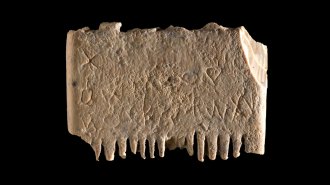 Humans
HumansThis ancient Canaanite comb is engraved with a plea against lice
The Canaanite comb bears the earliest known instance of a complete sentence written in a phonetic alphabet, researchers say.
By Freda Kreier